International
Ethiopia’s return to conflict: what we know
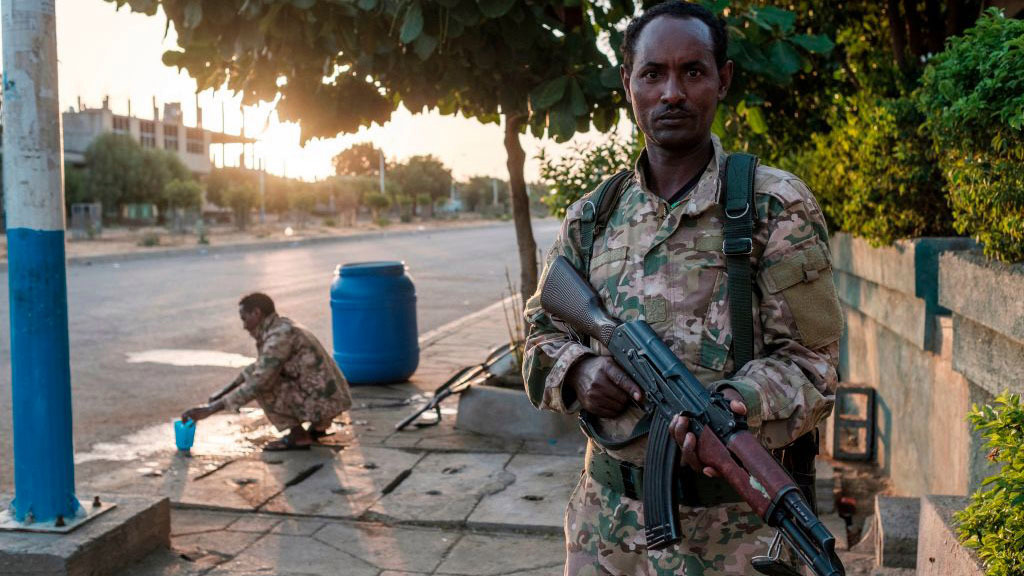
AFP
Fresh fighting between Ethiopian forces and Tigrayan rebels has broken a five-month truce that had paved the way for the resumption of humanitarian aid and tentative peace efforts.
The facts behind the sudden return to conflict in northern Ethiopia remain sparse. Here’s what we know so far and the questions that still linger:
– How did it happen? –
As has been the case throughout the 21-month conflict, both sides have accused each other of starting the fight and violating the truce that had been in place since late March.
The Tigray People’s Liberation Front (TPLF) said government forces and their allies launched a “large-scale” offensive towards southern Tigray at 5 am (0200 GMT) on Wednesday.
But Prime Minister Abiy Ahmed’s government said it was the rebels who struck first.
The tit-for-tat claims could not be independently verified as access to northern Ethiopia is severely restricted.
Later in the day, Ethiopia’s air force announced it had downed a plane carrying weapons for the TPLF that had entered its airspace via Sudan, a claim the rebels dismissed as a “blatant lie”.
– What does this mean for peace efforts? –
Regardless of who initiated Wednesday’s clashes, the prospects for peace in Africa’s second most populous nation appear grim, analysts say.
Even before the latest eruption of violence, the two sides were already at odds over the question of who should mediate potential negotiations.
The Abiy government wants the African Union’s Horn of Africa envoy Olusegun Obasanjo to lead peace talks while the TPLF has been pushing for Kenya’s outgoing President Uhuru Kenyatta to broker dialogue.
They have also sparred over the restoration of basic services such as electricity, communications and banking to Tigray — a key precondition for dialogue according to the TPLF.
The government on the other hand says federal service providers cannot work inside Tigray without a “secure environment”.
The Eurasia Group political risk consultancy flagged “the pre-emptive recruitment and training of troops by both camps” — an indication that neither side had put much stock in peace negotiations.
“Amid a resurgence in fighting, neither party will be willing to reduce their leverage for future talks by compromising on key issues,” said Eurasia’s Africa analyst Connor Vasey.
“Rather, they will likely aim to use the next phase of fighting to bolster their negotiating positions,” he said, setting the stage for an escalation in violence.
– How will humanitarian aid be affected? –
Prior to the truce, no aid had reached Tigray by road for three months, leaving the region of six million in desperate need of food.
Even after convoys resumed, fuel shortages have made it difficult for aid workers to distribute supplies.
Last week, the UN’s World Food Programme warned that nearly half the population in Tigray was suffering from a severe lack of food and rates of malnutrition had “skyrocketed”.
The return to conflict will worsen an already dire situation.
On Wednesday, the UN said the rebels had “forcibly entered” a WFP warehouse in Tigray’s capital Mekele that morning and taken a dozen tankers carrying 570,000 litres of fuel intended for emergency relief operations.
“Millions will starve if we do not have fuel to deliver food. This is OUTRAGEOUS and DISGRACEFUL,” WFP chief David Beasley said on Twitter.
– Is this a full-blown return to war? –
In recent weeks, both warring parties appear to have simultaneously broached the possibility of peace while also making preparations for a potential return to conflict.
Whether the latest conflagration leads to all-out war will depend on which view prevails, with analysts urging the international community to play a more active role in bringing both players to the negotiating table.
In a statement dated August 23, TPLF leader Debretsion Gebremichael said the rebels had participated in “two rounds of confidential face-to-face” meetings with top Ethiopian officials, the first acknowledgement by either side of direct talks.
The government has not confirmed the existence of such talks, but last week an official committee tasked with looking into negotiations called for a formal ceasefire in a proposal it planned to submit to the AU.
The eruption of hostilities is “a deafening warning to the key international and regional actors that they must immediately ensure peace talks actually occur”, said William Davison, senior Ethiopia analyst for the International Crisis Group think tank.
“They should accordingly instruct the belligerents to issue all of their demands when at the negotiating table, rather than making them preconditions for talks.”
Diplomatic efforts in the past have run into trouble.
The TPLF has accused Obasanjo of being biased in favour of the government, and Addis Ababa in turn has chastised US and EU envoys for urging a resumption of basic services to Tigray, reflecting the scale of the challenge ahead.
International
Germany says football bodies alone will decide on possible World Cup boycott
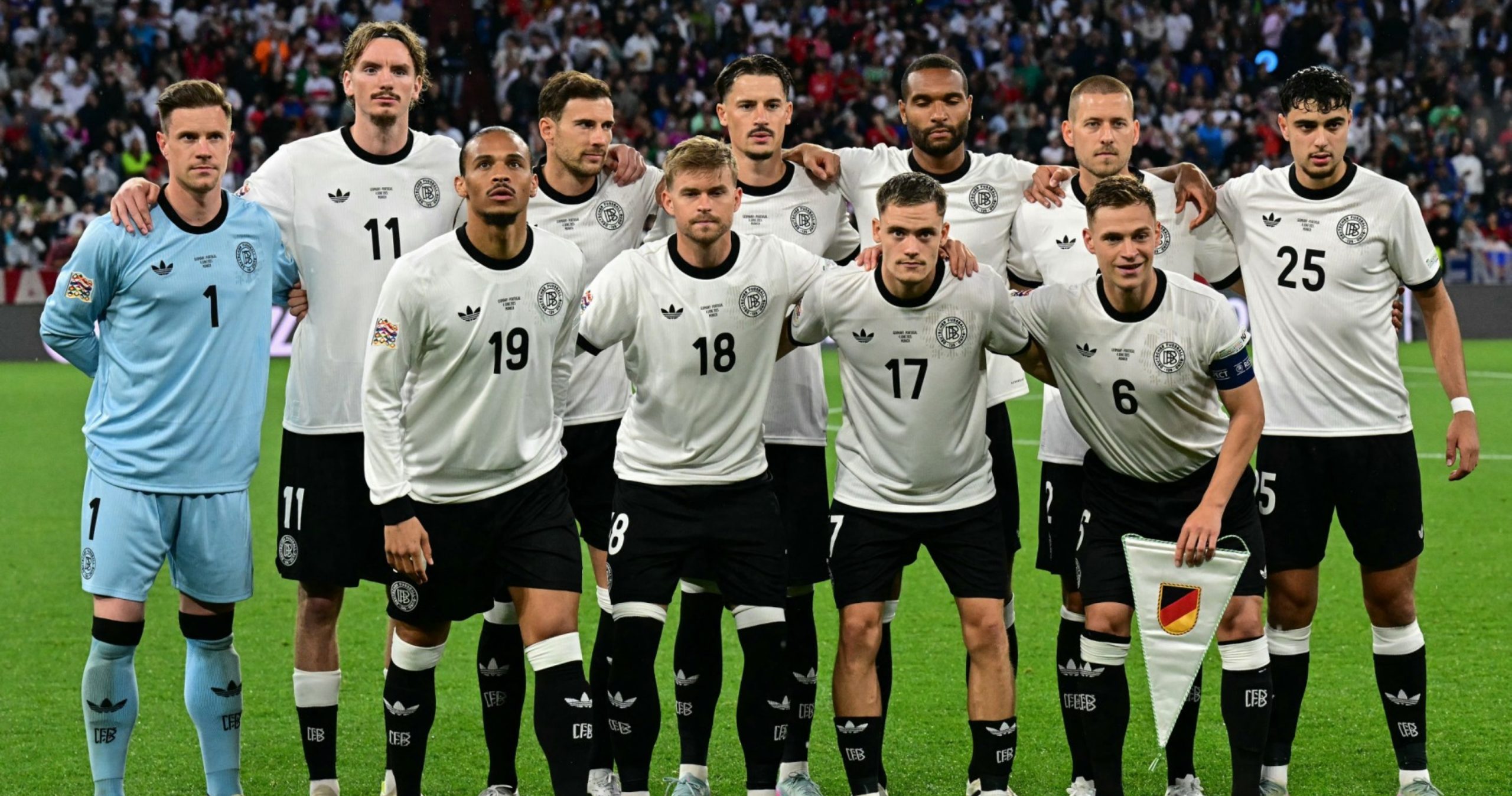
The German Football Association (DFB) and FIFA will decide with full “autonomy” whether to boycott the upcoming World Cup, which will be hosted mainly by the United States in six months, following threats made by former U.S. president Donald Trump, the German government told AFP on Tuesday.
Trump has threatened to seize Greenland and impose higher tariffs on European countries that oppose the plan, raising political tensions between the United States and Europe.
“This assessment therefore lies with the relevant federations, in this case the DFB and FIFA. The federal government will respect that decision,” Sports State Secretary Christiane Schenderlein said in a statement emailed to AFP.
AFP had asked the German government about the possibility of a boycott of the World Cup to be jointly hosted by Canada, the United States and Mexico from June 11 to July 19.
“The federal government respects the autonomy of sport. Decisions regarding participation in major sporting events or possible boycotts fall exclusively within the responsibility of the relevant sports federations, not the political sphere,” said Schenderlein, a member of the conservative CDU, the party of Chancellor Friedrich Merz.
International
Daily Mail publisher insists reports relied on legitimate sources amid privacy trial
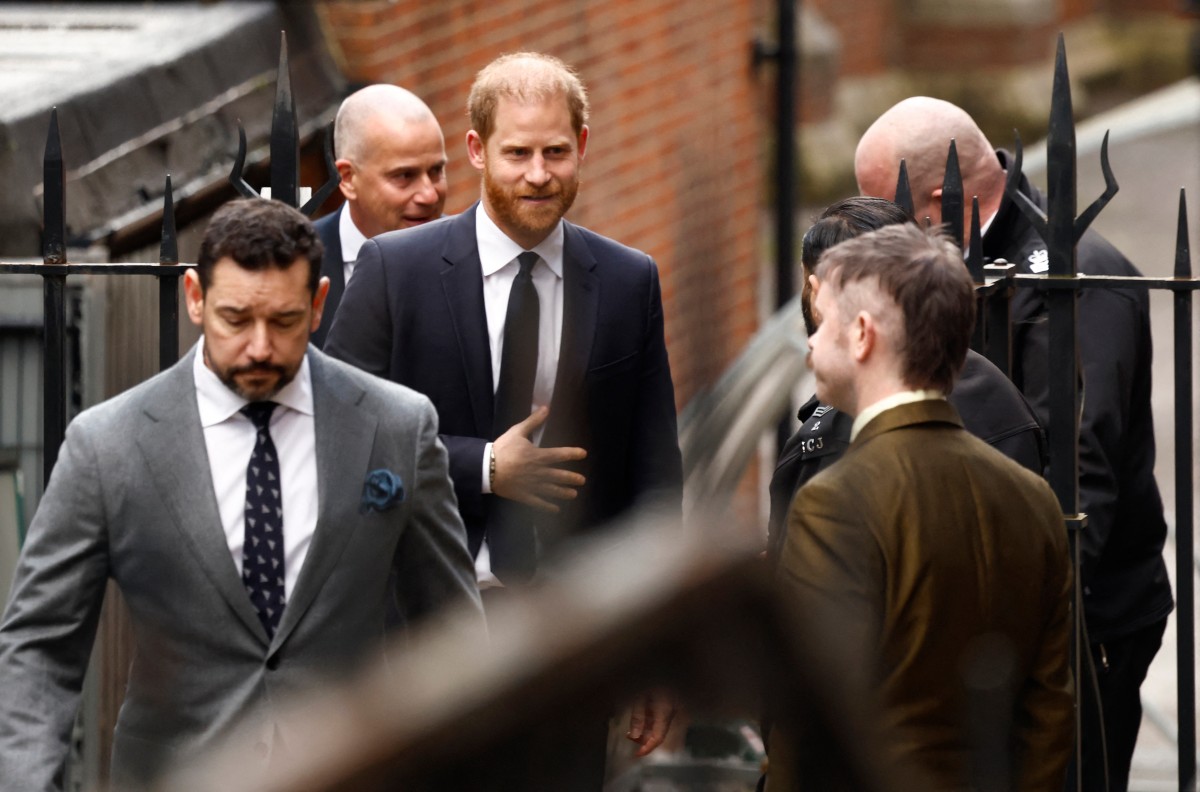
Two British tabloids accused of phone hacking and other forms of “unlawful information gathering” against Prince Harry and six other individuals, including singer Elton John, insisted on Tuesday that their reporting relied on legitimate sources.
Associated Newspapers Ltd (ANL), the publisher of the Daily Mail and The Mail on Sunday, sought to rebut allegations of privacy violations through illegal methods on the second day of trial at London’s High Court, following a lawsuit filed by the seven claimants.
Prince Harry, 41, who attended court hearings on both Monday and Tuesday, could be called to testify starting Wednesday in a trial expected to last up to nine weeks.
Lawyers for the claimants said the alleged illegal activities took place between 1993 and 2011, with some incidents reportedly extending as late as 2018. They argue that the tabloids hired private investigators to intercept phone calls and obtain confidential information, including detailed phone records, medical histories, and bank statements.
However, Anthony White, counsel for ANL, told the court that the trial would show the company presents “a compelling account of a pattern of lawful source acquisition” for its articles.
White added that the claims would require the court to believe that journalists and staff at the tabloids had engaged in widespread dishonesty, which the company strongly denies.
International
Death toll from southern Spain train crash rises to 40
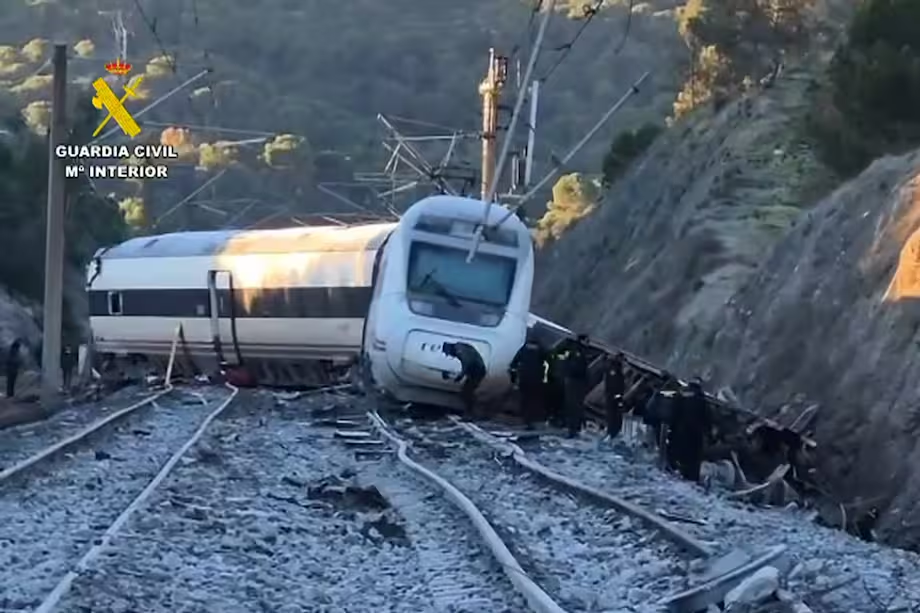
The death toll from the train accident that occurred on Sunday in southern Spain has risen to 40, according to investigative sources cited by EFE on Monday afternoon.
Since early Monday, search operations have focused on the damaged carriages of a Renfe train bound for Huelva, which collided with the last derailed cars of an Iryo train traveling from Málaga to Madrid after it left the tracks.
The crash has also left more than 150 people injured. Of these, 41 remain hospitalized, including 12 in intensive care units at hospitals across the Andalusia region.
More than 220 Civil Guard officers are working at the site, searching the railway line and surrounding areas for key evidence to help identify victims and determine the causes of the accident.
The tragedy has revived memories of the deadliest railway disasters in Europe in recent decades. In Spain, the most severe occurred on July 24, 2013, when an Alvia train derailed near Santiago de Compostela, killing 80 people and injuring 130 others.
At the European level, the worst rail disaster took place on June 3, 1998, in Eschede, northern Germany, when a high-speed train struck a bridge pillar at 200 kilometers per hour, resulting in 98 deaths and 120 injuries.
-

 International4 days ago
International4 days agoU.S. deportation flight returns venezuelans to Caracas after Maduro’s ouster
-

 International2 days ago
International2 days agoDeath toll from southern Spain train crash rises to 40
-

 Central America3 days ago
Central America3 days agoGuatemala prison uprisings leave 46 guards held by gangs
-

 Central America2 days ago
Central America2 days agoGuatemala raises police death toll to nine after gang violence escalates
-
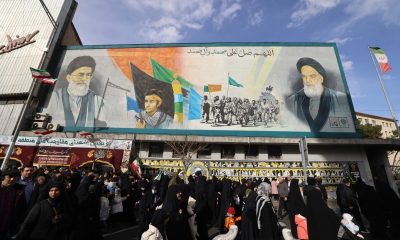
 International5 days ago
International5 days agoCanada accuses Iran of killing its citizen during anti-government unrest
-

 International2 days ago
International2 days agoOver 160 christian worshippers kidnapped in Kaduna Church attacks
-

 International5 days ago
International5 days agoSheinbaum highlights anti-drug gains after U.S. says challenges remain
-

 International3 days ago
International3 days agoChile declares state of catastrophe as wildfires rage in Ñuble and Biobío
-

 International4 days ago
International4 days agoFormer South Korean President Yoon sentenced to five years in prison
-
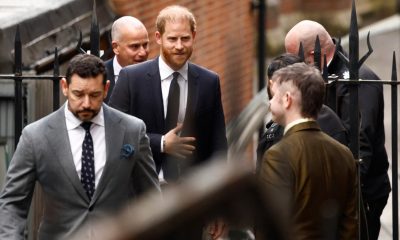
 International22 hours ago
International22 hours agoDaily Mail publisher insists reports relied on legitimate sources amid privacy trial
-
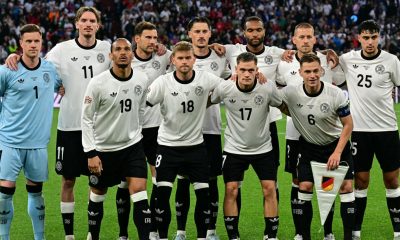
 International22 hours ago
International22 hours agoGermany says football bodies alone will decide on possible World Cup boycott
-

 International2 days ago
International2 days agoSpain’s Prime Minister pledges transparency after train crash kills at least 39


























